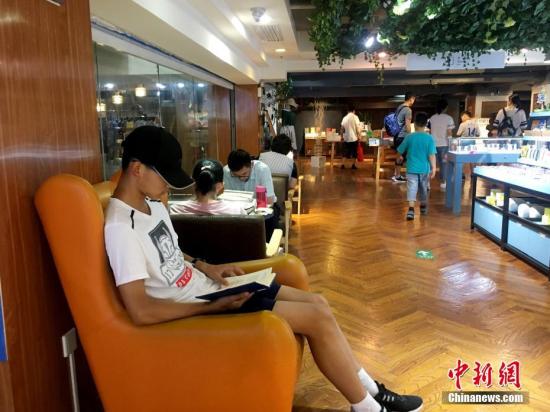Forty years of China’s literary creation: from "scar literature" to "online novel"
China news agency, Beijing, October 6 (Reporter Gao Kai) "Literary changes are influenced by the world, and the rise and fall depend on the time sequence" (Liu Xie, Southern Dynasty), from "scar literature" to "online novel", China’s literary creation has experienced colorful ups and downs with social changes in the past 40 years.

In 1977, the 11th issue of People’s Literature published Liu Xinwu’s "Head Teacher" in the headline of "Special Short Stories". The novel was criticized as "criticism and enlightenment" and the pursuit of authenticity, which exposed the spiritual poison caused by the "Cultural Revolution" to teenagers. In 1978, a wave of literary creations revealed the harm of the Cultural Revolution to the people’s spirit, such as Wound by Lu Xinhua and Soul and Body by Zhang Xianliang, told the spiritual history records of a generation of China intellectuals who reflected on the Cultural Revolution. It was called "Wound Literature" in the literary history, while The Head Teacher was regarded as a "pioneering work".
This year, in an interview with the media, Liu Xinwu said that "scar literature" is more about expressing thoughts, opinions and viewpoints, rather than really digging deep into the literature itself. In fact, when literature continues to progress, and then the creation is required to truly return to the literary ontology, it is far from enough to express the views on social life. "Trauma literature naturally melts with the development of the times."
What the reform has brought to China people is not only the abundance of material life, but also the expansion of individual thought and living space.
Since 1978, with the economic and social changes, Dangdai’s literary publications such as October, Flower City and Everyone have come out in succession, and they have quickly become fertile ground for the growth of literary creation.
After the "scar literature", a large number of reform works emerged, from Zhang Jie’s "Heavy Wings" to Ke Yunlu’s "New Star", which aroused widespread public concern. "New Star" appeared as a avant-garde literary image that reflected realistic problems and confronted social contradictions, and its adaptation of the TV series of the same name gained unprecedented attention and ratings at that time.
In 1986, Lu Yao’s Ordinary World interwoven daily life with huge social conflicts, showing the difficult and tortuous road that ordinary people have taken in the historical process of the great era. This award-winning work of Mao Dun Literature Award not only won the recognition of the literary world, but also aroused strong resonance among readers and became the "explosion" of that year.
China literature is increasingly returning to literary noumenon, and it is more inclined to pure literature.
Since the middle and late 1980s, a number of outstanding writers, such as Yu Hua, Su Tong, Liu Suola, Acheng and Ge Fei, have successively published their "golden" works.
In 1985, Mo Yan published the novella Transparent Carrots in China Writers, which added a wonderful stroke to the literature in the new period with magnificent imagination and expanded the creative space of novels in the new period. Mo Yan became famous in one fell swoop. Twenty-seven years later, he won the Nobel Prize in Literature because his works "magical realism blended folk stories, history and contemporary society".
Chen Jiangong, vice chairman of the Chinese Writers Association, said that during the period from 1978 to 2008, China’s literary creation, writers constantly expanded the realm of "ego", and integrated "ego" into the feelings of home and country, national worries and joys, and the people’s upsurge of creating history and the torrent of national rejuvenation. ? From "non-ego" to "ego" and from "ego" to "ego", the creative subject of literature has finally found its own artistic and historical orientation, which is the mystery of the outstanding personality of literary creation and the heavy and vigorous literary pattern over the years.
With the progress of science and technology and social development, the Internet has increasingly entered the lives of China people, and network literature has emerged. Since Cai Zhiheng’s online novel "The First Intimate Contact" became popular in 1998, China’s online literature has gone through 20 years.
With the development of film, animation, games and other related industries in recent years, the annual income of many online writers has reached "tens of millions".
Born in 1981, the online writer "Tang Jiasan Shao" has owned his own cultural investment company, ranking first in the rich list of online writers in China for many years. In addition to the material sense of existence, after years of development, China online writers have also become a member of the mainstream literary creation. Tang Jiasan believes that the traditional literary world has accepted and tolerated online literature to a great extent. With the network literature entering a new turning point in history, the network literature, which started from leisure and entertainment, has also shown a positive trend in the creation of realistic themes.
Literature comes from the times and also records the times. Looking back on the 40 years of reform and opening up, China’s literary creation is magnificent, and the future can be expected. As Mr. Lu Xun said, "Infinite distance and countless people are all related to me". (End)